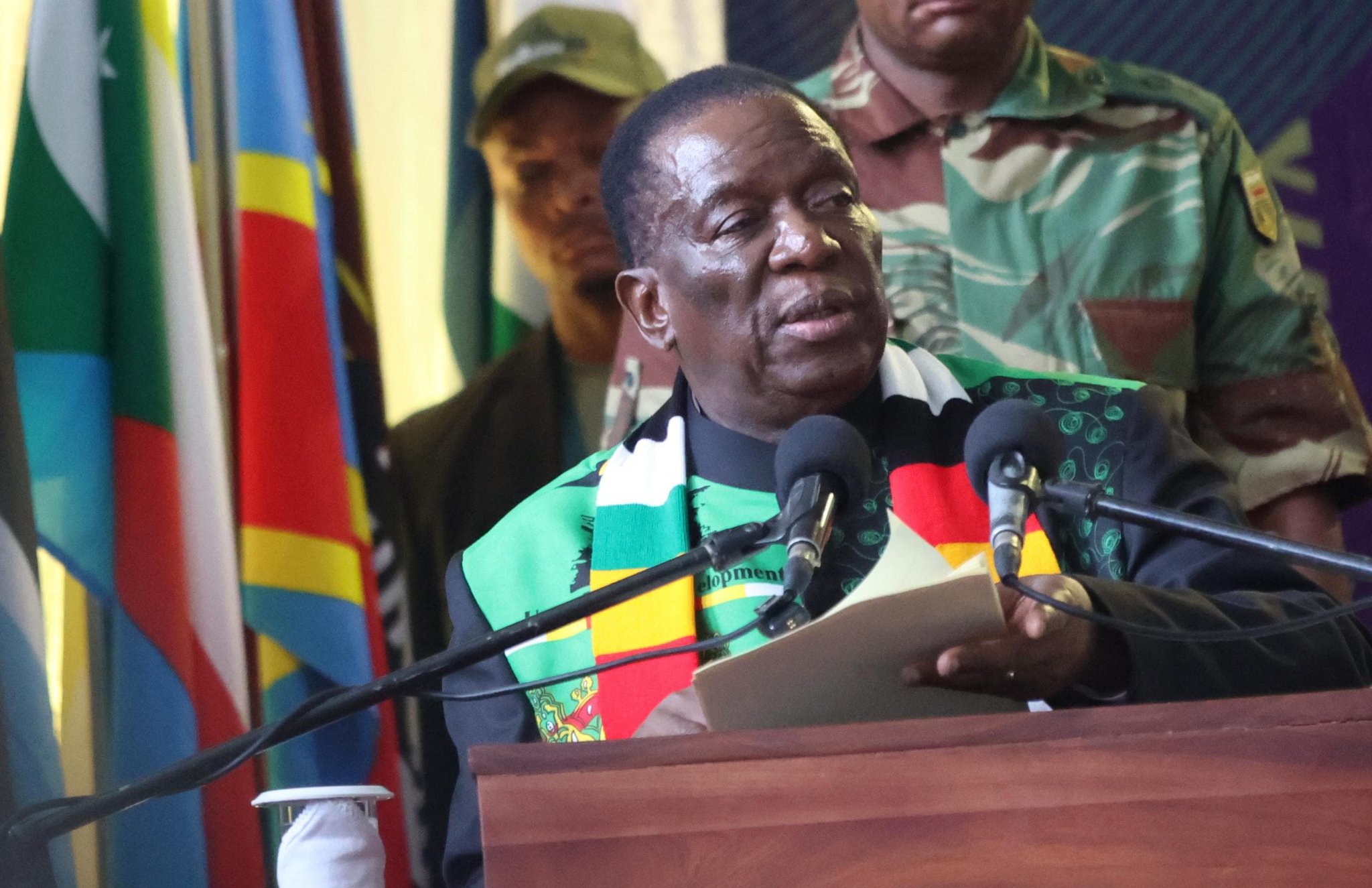President Emmerson Mnangagwa’s declaration that he will step down after his second term has been met with skepticism, with critics suggesting that it may be a tactical move to manipulate public opinion, masking an intention to retain power.
This sentiment emerged during an Asakhe Online X-Space discussion hosted by CITE on Monday, where citizens debated the remarks made by Secretary for Legal Affairs Cde Patrick Chinamasa at the Zanu PF Annual People’s Conference in Bulawayo last week.
Mnangagwa has repeatedly stated that he will not govern the country beyond 2028, in line with constitutional provisions.
However, in his speech, Chinamasa outlined the legal possibility of extending Mnangagwa’s tenure, emphasizing that the process would require two separate constitutional amendments and referendums.
According to Chinamasa, one amendment would address the ability to remain in office beyond two terms, while the other would allow the incumbent president to benefit directly from such a change.
Speaking during the X-Space discussion, academic Dr. Delta Ndou suggested that the ruling party could be using this strategy to shape a narrative to its advantage.
“We should not be quick to credit Mnangagwa because there’s a psychology behind communication. As a communication strategist, you start from the desired outcome and then work backward to craft a narrative that achieves your goal,” Dr. Ndou explained.
“If he claims to be a constitutionalist, and the current constitution does not support the outcome he desires, it means he could proceed with the amendments Chinamasa outlined. Mnangagwa could then continue to argue that he is adhering to the constitution, even if an enabling amendment allows him to remain in office. Presently, the constitution states that an incumbent president cannot benefit from a term-extension amendment. But what if that provision is also amended, allowing him to benefit? This could merely be a tactic to manufacture consent.”
Another participant, Batholomew Apostle, argued that succession should not dominate discussions.
“If the party has a clear vision for national progress, leadership succession should not be the main concern. The focus should be on achieving national goals, with each successive leader upholding these objectives,” he said.
ZAPU Secretary Mthulisi Hanana countered Mnangagwa’s claims of being a constitutionalist, pointing out that his rise to power followed an unconstitutional coup.
“The real question is, when did Mnangagwa become a constitutionalist? From discussions on issues like devolution and Gukurahundi, and other legal matters they have overseen, it has never been about constitutionalism,” Hanana remarked.
“Right now, Mnangagwa is following in the footsteps of the late Robert Mugabe, who repeatedly claimed he did not want to remain in power, yet argued that the people wished him to continue leading.”

